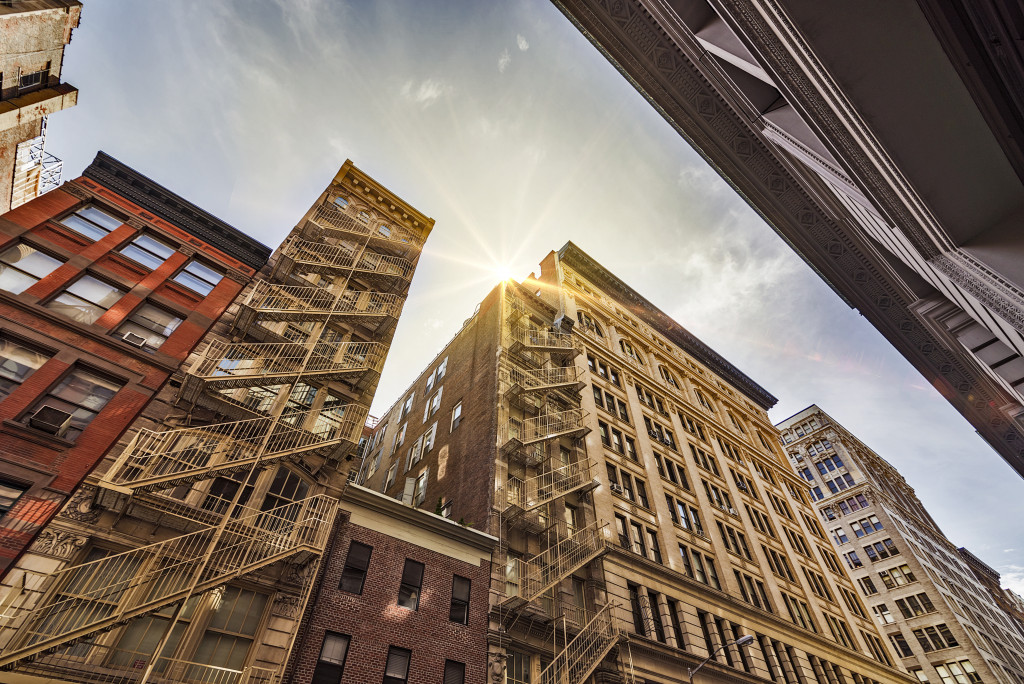- Affordable housing and the Section 8 voucher program provide safe and secure homes for low-income families.
- The Clean Water Act sets standards to limit the discharge of pollutants into surface waters.
- Fire safety codes require buildings to have smoke detectors, sprinklers, and fire extinguishers.
- Green building standards reduce energy consumption, conserve resources, and minimize environmental impact.
- Hazardous waste management regulations protect people from exposure to dangerous materials.
In the United States, regulations are in place to protect communities and ensure that everyone is adequately taken care of. It’s important to understand these regulations and how they are enforced so you can help ensure the safety and well-being of your community. Here are five government regulations that can protect your communities.
1. Affordable Housing
In the US, affordable housing legislation provides low-income families access to safe and secure homes. These laws help ensure that all community members are cared for, regardless of their income level. While affordable housing requirements vary from state to state, they typically limit the number of occupants allowed in a single dwelling and set rent limits.
Section 8
The section 8 voucher or housing choice voucher program is a federally funded program that aims to provide safe, secure housing for lower-income people. This program allows them to choose their own home and receive assistance from the government in paying rent. Rent payment subsidies are granted to tenants with incomes less than 50% of the area median income.
The community development block grant program
The community development block grant program is a federal program that financially assists state and local governments in creating sustainable communities. This program helps create housing, improve infrastructure and provide job training for low-income individuals. The federal government also provides funds to assist with possible home repairs.
2. Clean Water Act

The clean water act helps your community’s water quality by setting standards to discharge pollutants into surface waters. The act also provides financial assistance to states and organizations working to improve their drinking water systems and wastewater treatment facilities.
Under the Clean Water Act, all construction projects must have a Stormwater Pollution Prevention Plan (SWPPP). This plan outlines ways construction sites can prevent water pollution due to runoff from their project. Engaging a reliable SWPPP inspector is crucial to protecting your community for ongoing construction projects. The clean water act ensures all community members can access safe and clean water by maintaining these standards.
3. Fire Safety
The US has strict fire safety codes designed to protect your communities from the risks associated with fires. Local fire departments enforce these codes by regularly inspecting buildings for potential hazards and performing safety drills. Fire safety codes apply to businesses and residential properties such as apartment buildings or single-family homes.
Familiarizing yourself with these codes and the resources available in case of a fire is vital for protecting your community. Fire safety codes dictate that all buildings must have smoke detectors, sprinkler systems, and fire extinguishers installed in the event of an emergency. These codes also include items such as having a minimum number of exits in each building and ensuring that all exit routes are free from obstructions.
4. Green Building Standards
The US has many green building standards that regulate how new buildings must be built to reduce energy consumption, conserve resources, and minimize environmental impact. Local governments enforce these standards through building permits or other similar regulatory measures.
To be approved for construction, new buildings must meet specific criteria, such as using renewable energy sources or incorporating green design elements like natural ventilation and rainwater harvesting systems. Your community can benefit from green building standards in multiple ways. Not only does it reduce energy consumption and conserve resources, but it also reduces air pollution and improves the health of residents.
5. Hazardous Waste Management

Lastly, the US also has regulations regarding hazardous waste management designed to protect people from exposure to dangerous materials such as asbestos or lead paint chips. The primary enforcement usually happens at the state level through permits issued by state agencies such as the Department of Ecology or Division of Environmental Health Services for proper disposal of hazardous materials.
Collection and treatment
Collecting and treating hazardous waste in your communities is essential to ensure that the waste is disposed of safely. The US Environmental Protection Agency (EPA) has outlined regulations for adequately collecting and treating hazardous materials. This includes tasks such as requiring that the containers used must have a label with the type of material inside and that all waste is stored securely until it can be properly disposed of.
Disposal requirements
Once the hazardous waste is collected and treated, it is disposed of by the laws set forth by the EPA. This includes transporting it to a designated disposal facility and properly disposing it using approved methods. Recycling and reusing hazardous materials are also encouraged to reduce pollution and conserve resources. This is why in some cases, hazardous waste must be treated or recycled before it can be thrown away.
Final Thoughts
It is crucial for everyone living in the United States—from homeowners, business owners, builders, and developers—to understand what regulations are in place so that you can ensure your communities remain safe and healthy places for everyone involved. By familiarizing yourself with these regulations, you can help ensure that your community is a safe and healthy place to live. So make sure you understand what the laws are and how they work so you can take action to protect your community.



